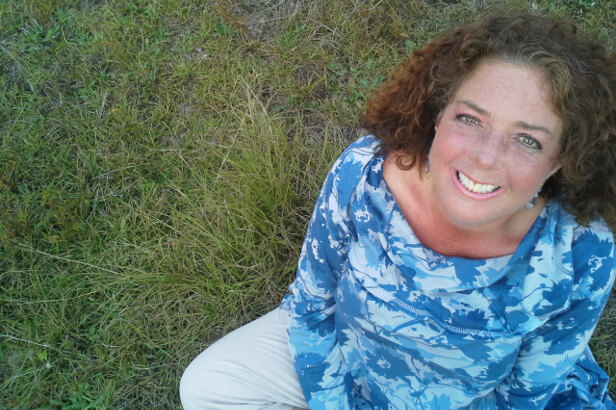November 13, 2013
By Janie Unknown

As a college student, I began having episodes of depression that cycled into severe mania and increasingly dangerous mixed states. By the age of 24, my psychiatrist was considering community residential treatment for me, as he believed it would be impossible for me to ever live on my own. Instead, I moved in with my sister. I am sure it must have been difficult for my family to watch their Janie disappearing before their very eyes. I soon weighed more than 300 pounds, stopped bathing and lost all purpose in life.
“It doesn’t make me damaged or broken, but it has offered me challenges for growth.
For a long time, I struggled. When I finally began my recovery journey several years after being diagnosed, I was true to my treatment and practiced effective coping mechanisms. But when it came to loving “me” just as I was, recovery was no more in reach than it had been before. That is, until I found NAMI South Carolina.
I walked into the NAMI South Carolina office in 2004 at the age of 34, and the program director at the time immediately signed me up for NAMI Peer-to-Peer. I had no idea my life was about to make a dramatic change.
Attending Peer-to-Peer helped me understand my own experiences and how to balance my life. I decided I had to see what else NAMI had to offer. But it was only after I became involved with NAMI In Our Own Voice (IOOV) changed my entire view of mental illness.
When I first became a NAMI In Our Own Voice presenter, the section “Acceptance” was most difficult for me. Although I was stable and becoming “successful” in my recovery, I didn’t accept myself for who I was. How could I possibly say to an audience of strangers that I truly believed I was OK with having a mental illness when I was unwilling to love that part of myself? How does one love a disease? How could I ever reach my true potential and be the person I was meant to be if I couldn’t accept myself for who I really was, only liking certain parts of myself? I was missing the “big” picture.
So, what happened? Presentations to various audiences began changing my attitude about mental illness. I hadn’t realized how much I was stigmatizing myself. I encountered so much understanding from audience members. I heard thoughtful comments from participants and eventually realized the only thing “wrong” with having a mental illness was not being able to find the good in it. The audience showed appreciation and respect for my struggles. They seemed to see my mental illness differently than I did.
These new realizations and discoveries have helped me leap forward into real recovery. I am now an IOOV state trainer and I serve on the NAMI South Carolina Board of Directors. I have given IOOV presentations to thousands of individuals in groups of sometimes more than a few hundred people across the U.S. and on the internet to people around the world. I have trained 80 individuals with living with mental illness in three different states to give their own IOOV presentations.
.jpg) I help with Crisis Intervention Team (CIT) training and speak to every cadet who cycles through the South Carolina Criminal Justice Academy. Plus, I share my recovery story with family members in NAMI Family-to-Family classes. One of my greatest joys is chairing the South Carolina Mental Health State Planning Council. Our Council helps monitor and evaluate the services every year for the South Carolina Department of Mental Health.
I help with Crisis Intervention Team (CIT) training and speak to every cadet who cycles through the South Carolina Criminal Justice Academy. Plus, I share my recovery story with family members in NAMI Family-to-Family classes. One of my greatest joys is chairing the South Carolina Mental Health State Planning Council. Our Council helps monitor and evaluate the services every year for the South Carolina Department of Mental Health.From that original NAMI Peer-to-Peer class, I have gained lifelong friends and learned skills I use every day. I was introduced to support groups. My husband even became trained in and has taught NAMI Family-to-Family classes.
I finally love me. The whole me, just the way I am. There is nothing wrong with having a mental illness. It doesn’t make me damaged or broken, but it has offered me challenges for growth.
I would never have reached or been on the road to becoming the “real” Janie if I had not faced the challenges presented by my bipolar disorder. By living with mental illness, it helped make who I was. It created the whole me; the me who is here; the me who my husband, family and friends love; the me who is respected by others and myself.
The girl who walked into the NAMI South Carolina office in 2004 had no idea how her life was about to make a dramatic turn. I wonder how many individuals are just like me, waiting for their lives to finally get on track. I am so glad NAMI is there for us all because in the end NAMI is us: the people around the country working together to make lives better.
Submit To The NAMI Blog
We’re always accepting submissions to the NAMI Blog! We feature the latest research, stories of recovery, ways to end stigma and strategies for living well with mental illness. Most importantly: We feature your voices.
LEARN MORE